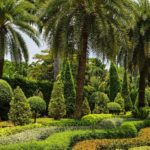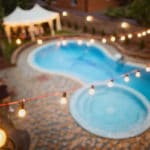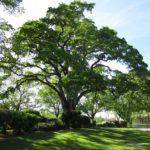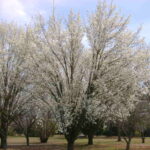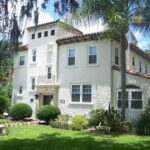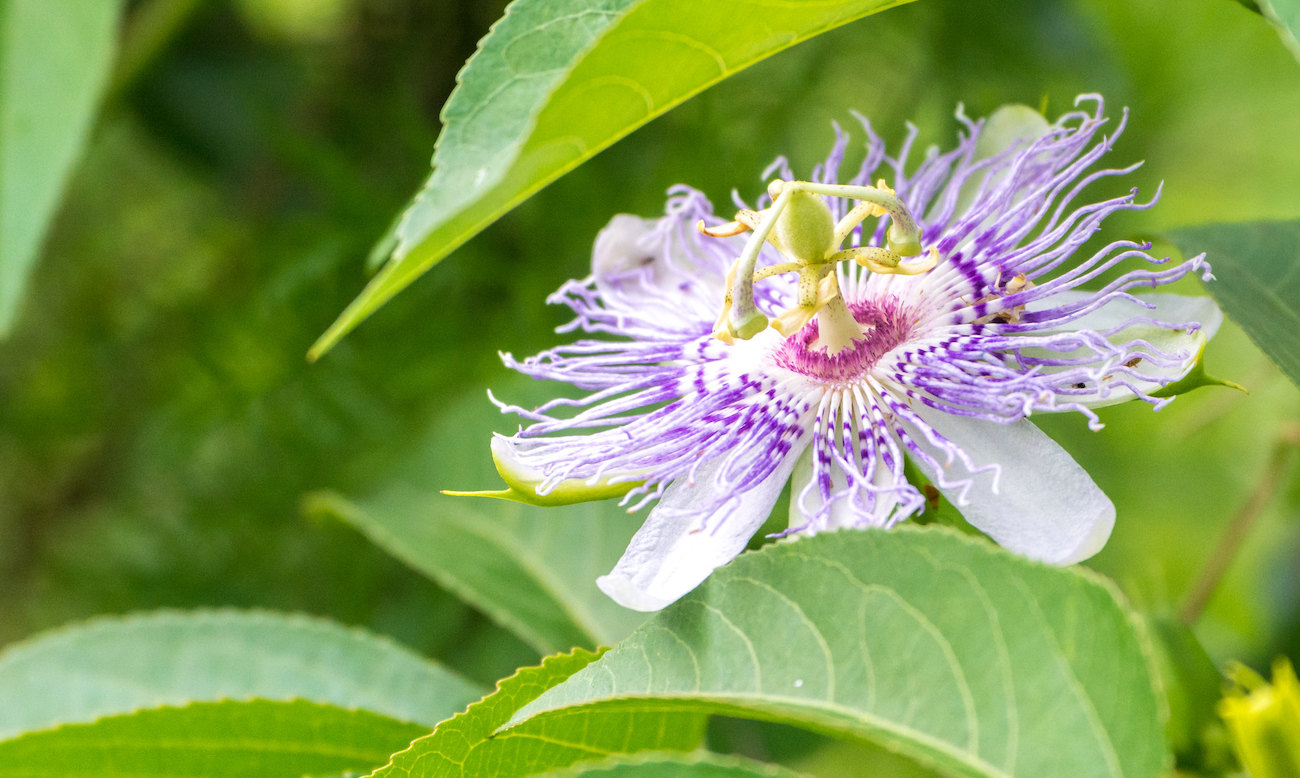
Flowers give your lawn a beautiful pop of color and can even attract some friendly, pollinating visitors to your property. So what are the best flowers to plant in Jacksonville?
- Black-eyed Susan
- Beach sunflower
- Coral Honeysuckle
- Scarlet Salvia
- Blanket Flower
- Butterfly Weed
- Maypop
Jacksonville homeowners have many popular flower choices, including marigolds, azaleas, hydrangeas, and hibiscus, but there are even more garden plants to consider. Many of these lovely blooms are even homegrown Florida natives.
1. Black-eyed Susan (Rudbeckia hirta)
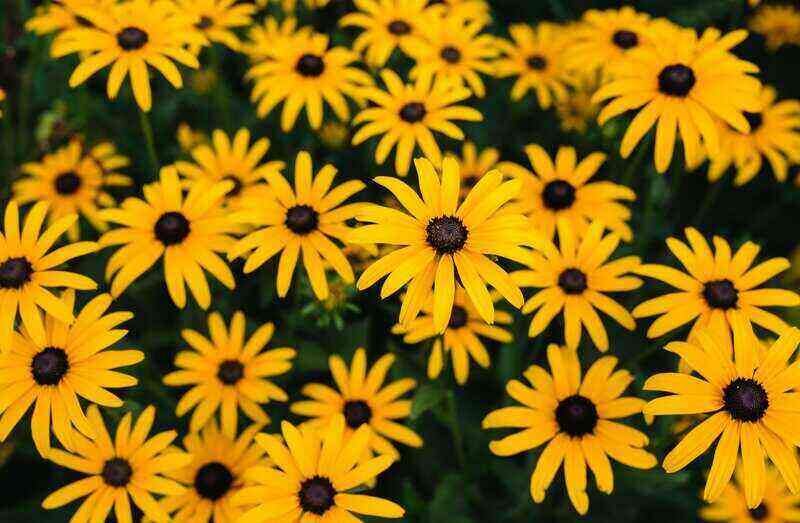
Also known as the gloriosa daisy, black-eyed Susan is a very hardy wildflower. Although black-eyed Susans are typically yellow, they also come in red, orange, and gold. They’re perfect for coastal homeowners, as they are very salt-tolerant, don’t mind drought, and have easy care requirements.
You’ll enjoy these blooms every year, as they typically self-seed. Just be careful, as they spread quickly; they might invade your other flowerbeds.
Pro Tip: Remove dying flowers, as this encourages your plants to bloom more. Black-eyed Susan is also perfect for flower arrangements – these fresh flowers add a lovely pop of gold.
- Hardiness Zone: 2 – 11
- Sun: Full sun
- Water Needs: Moderate, but highly drought-tolerant
- Soil: Can grow in most soils as long as they are well-draining; avoid alkaline soils
- Duration: Perennial
- Mature Height: 2 to 3 feet
- Blooming Period: Summer to fall
- Planting Period: April to June
2. Beach Sunflower (Helianthus debilis)
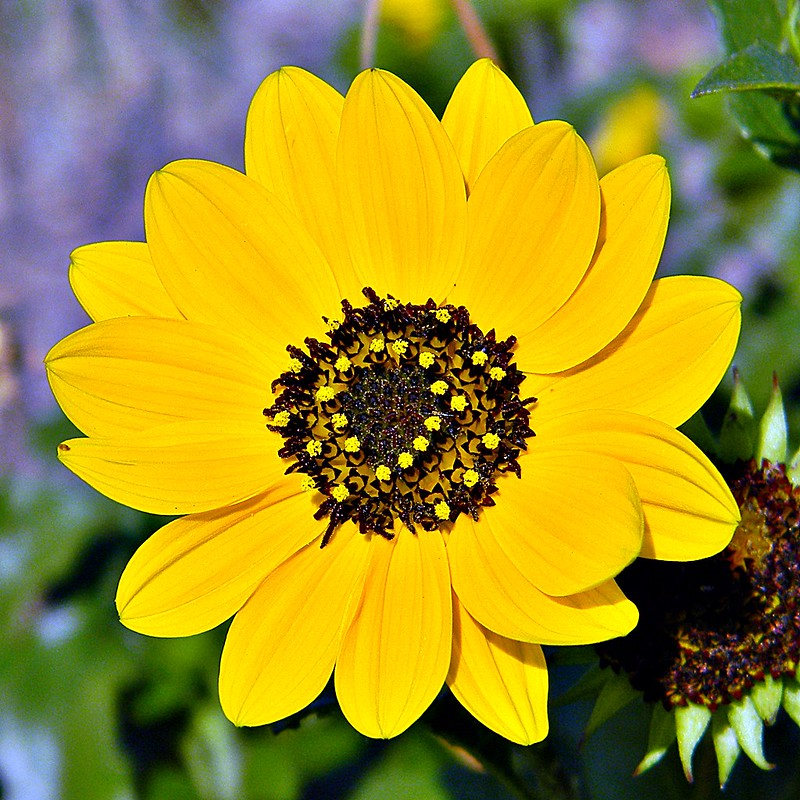
Often used as a ground cover, the beach sunflower draws in lots of wildlife. Be prepared to see butterflies flocking to its blossoms and birds eating its fruit.
These small, sunflower- and daisy-like blooms are a cheery yellow and look good in a floral arrangement.
As its name suggests, this native plant is great for coastal areas and other hot and dry places. Beach sunflower is very salt- and drought-tolerant, and it doesn’t need much water or fertilizer. Although it suffers in colder temperatures, you don’t have to worry about it much here in Jax, as the beach sunflower usually re-seeds itself.
- Hardiness Zone: 8B – 11
- Sun: Full sun
- Water Needs: Low; be careful not to overwater. Very drought-resistant
- Soil: Tolerates many soil types. Avoid clay soils
- Duration: Annual in areas with freezing temperatures, perennial otherwise
- Mature Height: 2 to 4 feet
- Blooming Period: Year-round
- Planting Period: April to August
3. Coral Honeysuckle (Lonicera sempervirens)
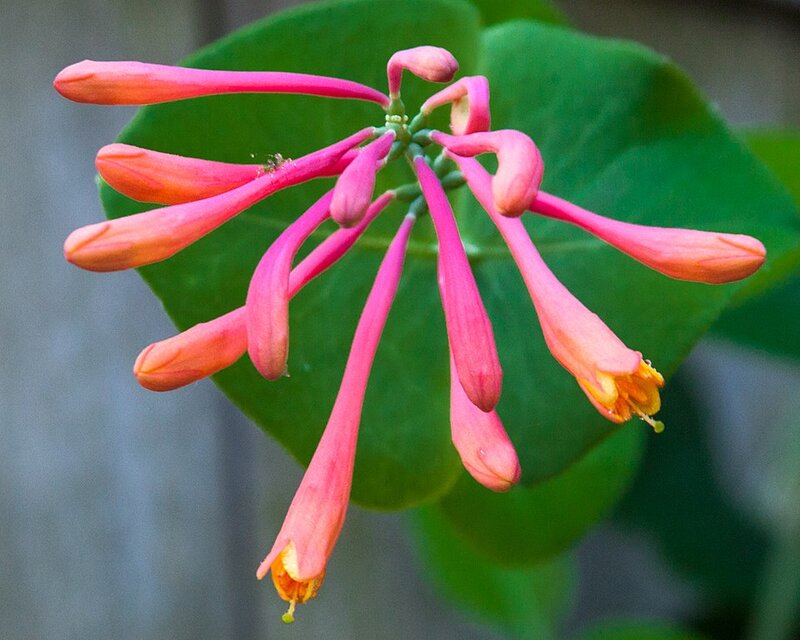
Known by some as trumpet honeysuckle, these evergreen flowering vines are great accents to your Jacksonville yard. Coral honeysuckle’s tubular scarlet flowers are striking against their smooth dark green leaves. They draw in hummingbirds and butterflies in the spring and summer, while their berries feed songbirds from late summer to fall.
If you want a splash of yellow, you can look for the Sulphurea cultivar.
Coral honeysuckle is low-maintenance, drought-tolerant, and non-invasive, making it a Florida-friendly alternative to Japanese honeysuckle.
In the winter, coral honeysuckle’s leaves may drop during cold snaps.
- Hardiness Zone: 4 – 10A
- Sun: Best in full sun, but tolerates partial shade. Avoid full shade
- Water Needs: Medium
- Soil: Tolerates all soils except dry sandy soils and highly alkaline soils
- Duration: Evergreen vine
- Mature Height: Depends on its support
- Blooming Period: Spring to summer
- Planting Period: Can be planted all year round
4. Scarlet Salvia (Salvia coccinea)
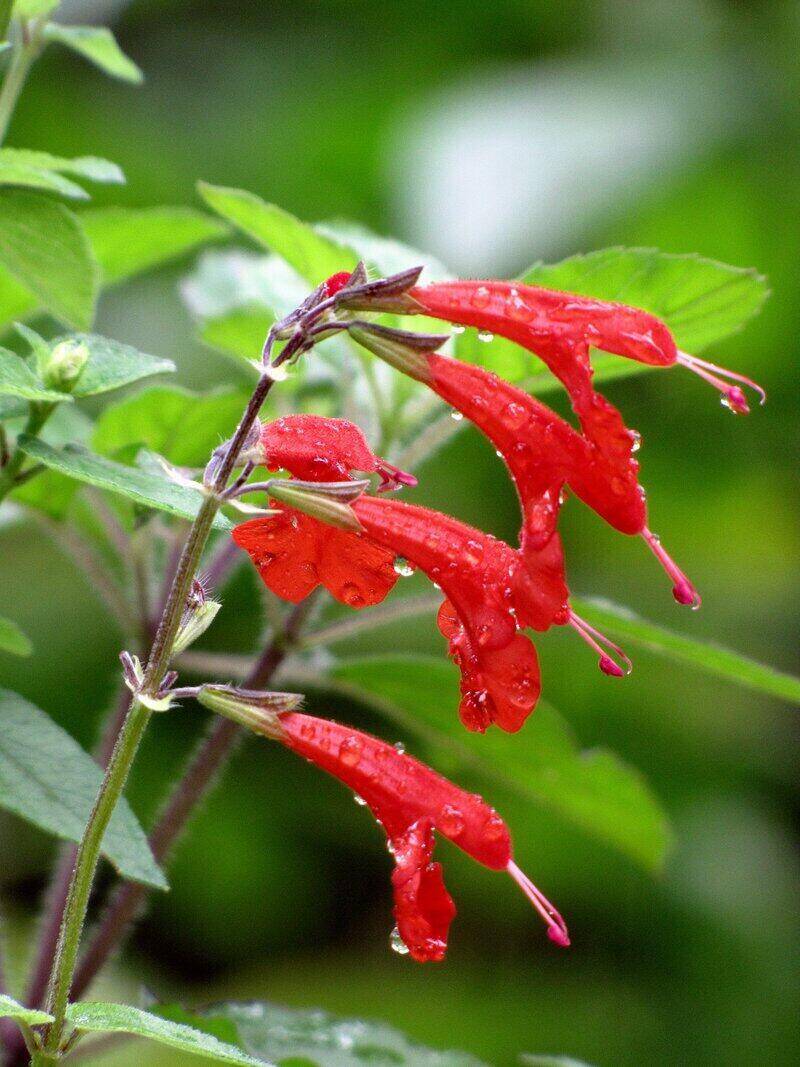
Despite its name, scarlet salvia or scarlet sage sometimes has white or pink flowers in addition to its beautiful red blooms. These flowers are loved by hummingbirds and butterflies, attracting them to your garden.
Scarlet salvia tolerates many types of soil and handles heat very well, making this a great accent in sunny areas. Near the end of the year, scarlet salvia plants don’t look as good, so it’s best to cut them back, which won’t hurt them.
- Hardiness Zone: 7 – 11
- Sun: Can tolerate full sun to full shade, but performs best in full sun
- Water Needs: Moderate
- Soil: Can tolerate many types of soil but prefers moist, well-draining soils
- Duration: Perennial
- Mature Height: 2 to 4 feet
- Blooming Period: Spring to fall
- Planting Period: April to August
5. Blanket Flower (Gaillardia pulchella)
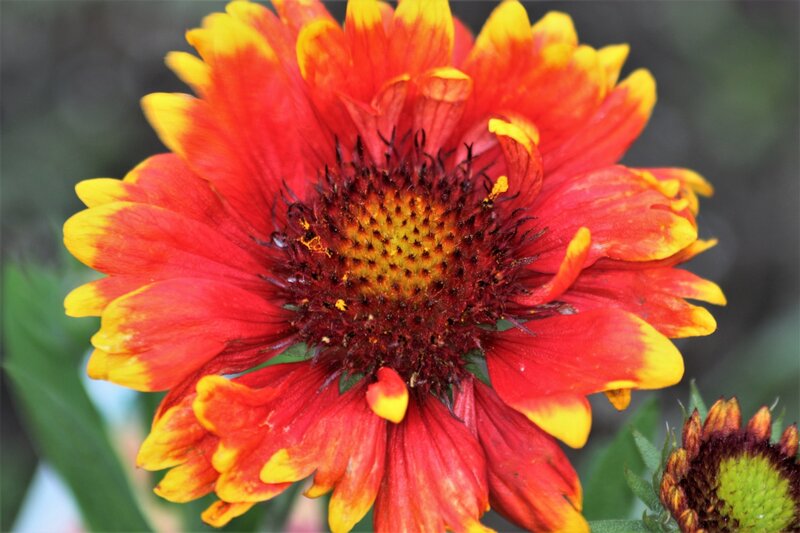
Blanket flower – also known as gaillardia – comes in many colors: reddish-purple blooms, yellow-tipped orange-red petals, and solid yellow, orange, and red blossoms. These beautiful flowers attract butterflies to your garden.
Like black-eyed Susans, blanket flowers typically re-seed themselves and spread quickly, so your garden could have a true blanket of gaillardias.
While the blanket flower used to be considered a native Florida plant, a paper suggests that they might not actually be native to the Sunshine State. Regardless, they can be a lovely addition to your North Florida lawn.
If you’d prefer a native species, you can look into lanceleaf blanket flower (Gaillardia aestivalis), which has similar colors but a slightly different shape.
- Hardiness Zone: 3 – 11
- Sun: Full sun
- Water Needs: Medium, but highly drought-tolerant
- Soil: Highly prefers well-draining soils, but it can tolerate all soils, including salty and sandy soils
- Duration: Perennial
- Mature Height: 1 to 2 feet
- Blooming Period: Summer to fall
- Planting Period: April to May, but you can start planting in early spring
6. Butterfly Weed (Asclepias species)
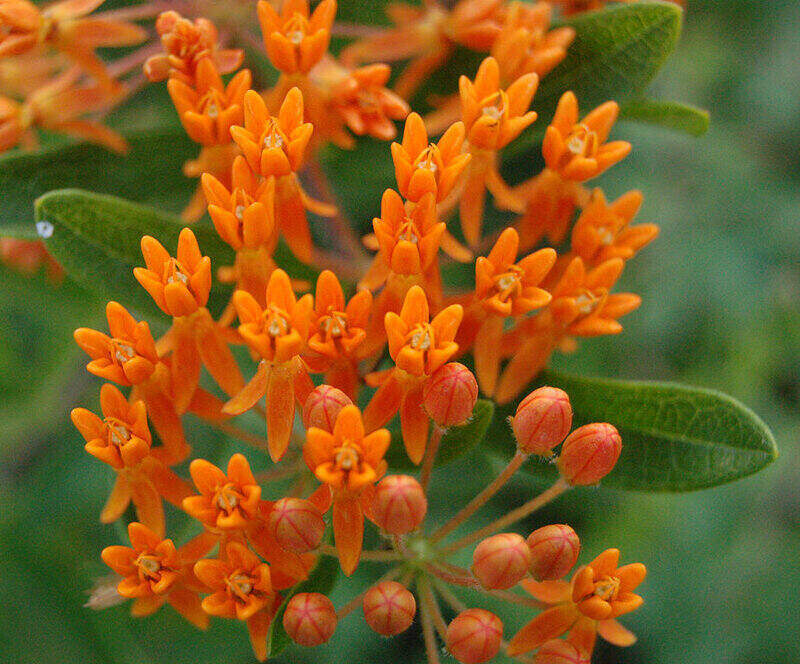
The native butterfly weed has orange, red, and yellow blooms that look great when towering over shorter flowering plants. It sometimes self-seeds, so you may end up with butterfly weed plants every year. Like all milkweeds, butterfly weed’s milky sap is toxic; keep your pets and children away!
This genus of flowers is more popularly known as milkweed. They attract many butterfly species – including the endangered monarch butterfly – as well as hummingbirds.
Florida homeowners have over 20 milkweed species to choose from, with most of them being native to the state. The most popular choices are the native butterfly weed (Asclepias tuberosa) and the non-native tropical milkweed (Asclepias curassavica).
You also have other milkweed plants to choose from.
The native few-flower milkweed (Asclepias lanceolata) is native to Florida, and it prefers moist soils.
The non-native giant milkweed (Calotropis giganteana) is more Florida-friendly than the tropical milkweed, and its large purple or white flowers are loved by bees and butterflies. However, it’s quite tall, so the University of Florida’s Institute of Food and Agricultural Sciences recommends that you place it at the back of your pollinator garden.
- Hardiness Zone: 8 – 11
- Sun: Full sun
- Water Needs: Moderate
- Soil: Tolerates acidic soil. Can’t handle salty soils
- Duration: Annual
- Mature Height: 2 to 3 feet
- Blooming Period: Spring to summer, specifically July to September
- Planting Period: March to September
7. Maypop (Passiflora incarnata)
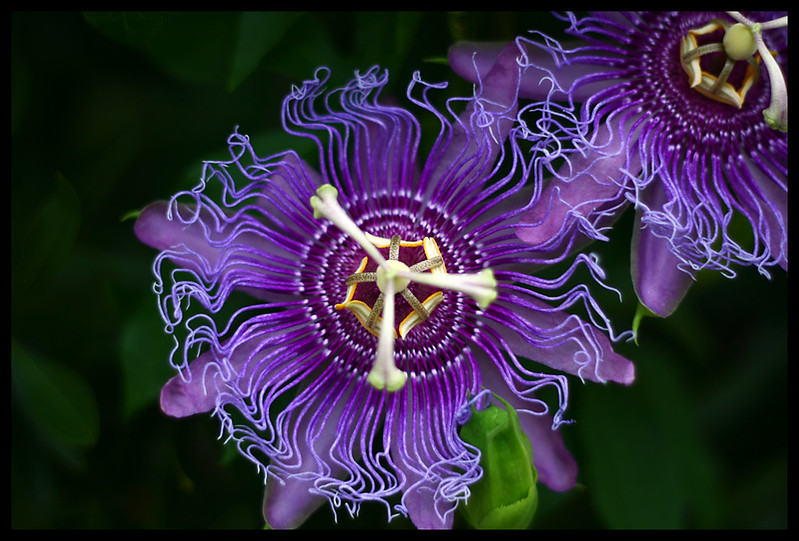
Like the scarlet salvia, the maypop is an evergreen vine. Also known as the wild passion flower, this Florida native has very showy and intricate purple-pink flowers.
These flowers, which last about a day, attract butterflies and hummingbirds to your Jacksonville garden from summer to fall. This vine also produces edible fruits like its cousin, the passion fruit, but they’re not very tasty.
Maypop is often thought to be invasive because of how prolific it is. If not controlled, it can invade other parts of your lawn. It’s just a matter of removing problematic vines.
- Hardiness Zone: 7B – 11
- Sun: Full sun
- Water Needs: Moderate, but highly drought-tolerant
- Soil: Grows in many soil types. Avoid highly alkaline soils
- Duration: Evergreen vine
- Mature Height: Depends on supporting structure
- Blooming Period: Summer to fall
- Planting Period: Can be planted year-round
FAQ About Jacksonville Flowers
Jacksonville is located between USDA Hardiness Zones 8B and 9A. Look for plants that thrive in these zones for the best results.
Many flowers can be planted all year round, but lots of them do better when planted during their recommended planting periods. Maypop and coral honeysuckle are some plants that do well no matter the time of year.
Watering your flowers one to two times a week should be enough once they’re well-established. As for the time of day, it’s best to water your flowers and the rest of your lawn in the early morning.
How To Keep Your Jacksonville Yard Blooming and Beautiful
Flowers brighten up your lawn and raise your property value. They can also help calm you down during stressful times, especially once you see the butterflies, birds, and other wildlife paying your garden a visit.
If you’d like some help in planting more flowers in your Jacksonville yard, you can contact a Jacksonville landscaping professional on LawnStarter today.
Main Photo by: Andrew Cannizzaro / Flickr / CC BY 2.0
